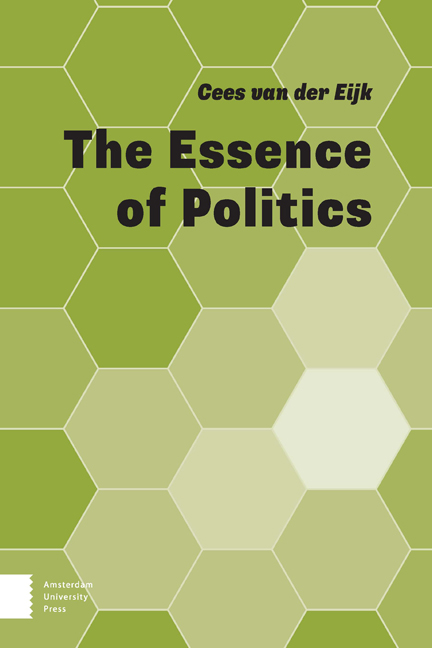Book contents
- Frontmatter
- Dedication
- Preface
- Contents
- Chapter 1 What is Politics?
- Chapter 2 Conflict and Cooperation
- Chapter 3 Key Questions
- Chapter 4 Political Actors
- Chapter 5 Political Conflicts
- Chapter 6 Political Power
- Chapter 7 The Political Landscape and the Wider Context
- Chapter 8 The Political System and the Political Community
- Bibliography
Chapter 8 - The Political System and the Political Community
- Frontmatter
- Dedication
- Preface
- Contents
- Chapter 1 What is Politics?
- Chapter 2 Conflict and Cooperation
- Chapter 3 Key Questions
- Chapter 4 Political Actors
- Chapter 5 Political Conflicts
- Chapter 6 Political Power
- Chapter 7 The Political Landscape and the Wider Context
- Chapter 8 The Political System and the Political Community
- Bibliography
Summary
Politics, as discussed in Chapters 1 and 2, is characterised by three things. First, it deals with matters that have to be settled for an entire society, community or group. Second, there is no agreement about what these matters are, or about their desired outcomes. Third, this generates conflict and cooperation, which drive politics. Throughout this book, it has been argued that political conflict and cooperation exists in all kinds of settings, including many that are not associated with the term politics in everyday parlance. Thus, politics exists in countries or states, but also in firms, schools, hospitals, churches, social organisations, and even in families. To avoid having to list repeatedly all these settings of political processes, we use the overarching term political system.
The concept of political system refers to the members, the political actors, institutions, procedures and relations of power and influence that exist in the society, community or group in question. The people in a political system are often referred to as the political community. This is not a ‘random’ collection of individuals, but they are connected, be it only because of their shared existence in the same political system. Often this involves other connections as well, which may consist of more or less shared or linked experiences, identities, knowledge, values and norms. This does not imply that a political community is homogeneous. On the contrary – as is clear from the presence of political conflict. Nor does it imply that everyone shares the same identities and values, but it does imply that these are linked, which may be because they are shared, but a linkage may also exist through an antagonistic relation.
The incomplete fit between political systems and political Communities
One of the most fundamental conflicts in political systems is about what the political community should be and especially who should be included in it.
As an example, let us consider states, which are large, geographically bound political systems. All people living in a state's territory can be considered a political community, but are there any additional characteristics beyond the mere fact that they inhabit the same area and are subject to the same political system? Are they a community, or a nation?
- Type
- Chapter
- Information
- The Essence of Politics , pp. 121 - 128Publisher: Amsterdam University PressPrint publication year: 2018



